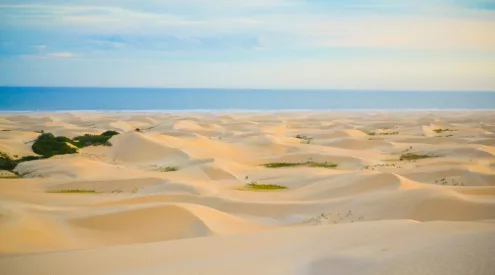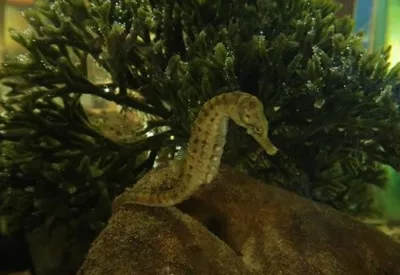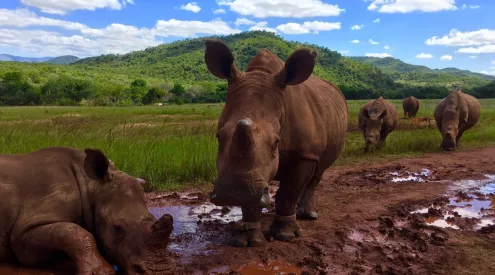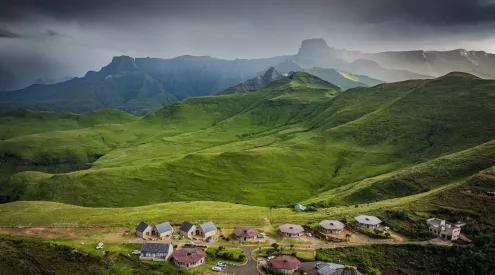Melissa Bachman, like so many others before her, came to South Africa on a mission to kill the king. With a little help from the locals she, like so many others before her, succeeded in her mission. Now if you’re going to pay a lot of money to kill a lion, you’re sure as anything to take a photo of yourself posing with its dead body. If you’re the kind of person who is going to pay the money, kill the lion, and take a photo of yourself with it, you’re also definitely going to put that photo up on social media. What Melissa Bachman didn’t know is that the South African, and indeed broader online public would erupt into a furore, directing all kinds of abuse in her direction. While I don’t think that anyone has to approve of, or even accept Bachman’s actions, this abuse is, I believe, as poorly directed as it is poorly considered.
Addressed specifically toward Melissa Bachman herself, reactions vary from the angrily tongue-in-cheek, but considered (eg. This ‘open letter’ penned by Ben Tovato), to unremitting, unmeasured and vicious attacks in the form of tweets, online comments and other ‘open letters’. She has been labelled every un-PG epithet in the book, while some describe the ways in which she herself deserves to die. People have even taken it upon themselves to convince the government to ban her from South Africa by turning to that great change-inducing weapon of democratic expression, the Facebook petition…
In a country where hunting is a part of life for so many, and in which you can pick up a weekly magazine chock-a-block with equivalent trophy photos, what is it about this particular person and picture? What is it that sparks such vocal objection, typified by abuse and flippant aggression?
As pointed out in this article published by the Daily Maverick, many of the shots leveled at Bachman take an uncomfortably misogynist tone. Labelled “bitch”, “whore” etc. it seems that Bachman’s gender and appearance might have a lot to do with people’s reactions, whether they realise it or not. Would people have reacted with such vitriol disgust if it was, let’s say, Bear Grylls squatting behind the lion? Where was the uproar when national hero Bakkies Botha killed this (admittedly less beautiful) French wild boar just less than a month ago?
Groete uit Frankryk se woude. Lekker slaap almal. Blessings. pic.twitter.com/Tu0lw8qZa1
— Bakkies Botha (@BakkiesBotha4) October 23, 2013
Perhaps the image of Bachman is uncomfortably inconsistent with the usual context in which we accept or tolerate the idea of hunting, i.e. when practiced by (mostly Afrikaans) men for whom hunting is, and always has been, a part of life and ‘culture’. If you visit Melissa Bachman’s website, the thing which will strike you first is not the G.I. Joe mud streaks on her face. Instead, her ultra-marine eyes will have you debating with yourself whether or not they’ve been digitally enhanced. She is a beautiful young woman, and as such doesn’t quite fit the profile of people who we allow to shoot living animals in our romanticised imagining of the practice. If you look at the images from her childhood, however, you’ll find the picture of her grinning from ear to ear holding up a freshly nabbed duck rather endearing. It would be hard to argue, having seen these pictures, that hunting has been any less a part of her life and culture than that of any plaas seun.
Some might suggest that isn’t the ‘huntress’ which is the problem here, but rather the hunted. Perhaps we react with particular rage and disgust at the sight of something so powerful and beautiful having been killed in such an unfair manner. Our romanticised image of lions in our country is not one in which the ultimate predator gets taken out by some camo-beanie donning coward, challenging the king from the arse-end of a telescopically sighted rifle. The fact that she is a woman already feels slightly uncomfortable. If you throw in the fact that she is a yank (I think it’s fair to suggest that Somalis are not the only foreigners who suffer from our inflated sense of national preciousness) and thus couldn’t possibly appreciate lions as much as we do, it all just becomes too much for people to assimilate into their understanding of hunting in South Africa. The fact remains, however, that lion hunting is perfectly legal and relatively widely practiced in our country. Our romanticised image of the lives of lions in South Africa just is, in many cases, skew.
I think at this stage it’s appropriate to add the ubiquitous disclaimer for anyone daring to defend Bachman on any level. It fills me with sadness and a sense of real injustice when I see the slaughtered lion. I think it is important, however, for everyone to take a step back, breathe a little and think about what’s actually going on here. What’s actually the problem?
For people to sign a petition in their thousands in the hope that the government will disallow Bachman re-entry into the country is the height of folly. She has made a perfectly legal and probably rather hefty contribution to our economy. As the very people who deem lion hunting to be acceptable enough to legalize it in the first place, the government welcomes the Melissa Bachmans of the world with open arms. If people are so disgusted, which they may rightfully be, they should direct that disgust toward addressing the fact that our legislation allows for people to come to South Africa, be greeted with a smile and taken to the lion they are welcome to kill.
What needs to happen is not a vitriolic witch hunt, but a considered debate around the legal status of the practice of hunting in South Africa, in all of its different forms. If any such debate is to take place, it has to include a realistic image of what hunting involves, which Melissa Bachman may have given us. For this eye-opener we should grateful, as much as it might make our blood boil to see her grinning gleefully over the destruction of something we love.


















